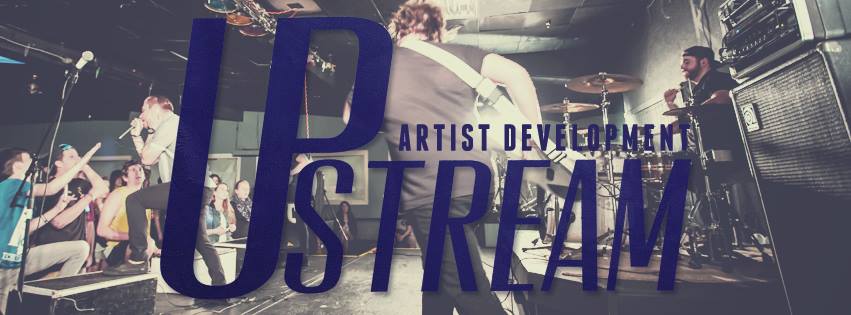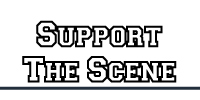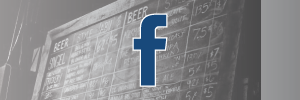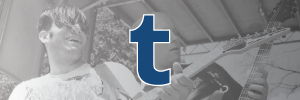INTERVIEW BY JOE FITZPATRICK
PHOTOS BY MATT FERGUSON
Mark Bradley has always been passionate about music, and you can tell it through the way he speaks and his actions as the founder, owner, talent buyer, and booker of Upstream Artist Development (AD), which began as Mark Bradley Music in its formative years. Though it was originally founded in 2011, Bradley and his associates didn’t rebrand their concert production company to Upstream AD until 2014 when the brand really began to take off. With Bradley at the helm and delegating the other responsibilities of running their blog and social media pages to his staff and team of contributors, Upstream AD has been making major strides in their contributions to the music scenes in Virginia and Washington, D.C., hosting shows across the region, including at Canal Club in Richmond, Va., Empire in West Springfield, Va., and, most recently, The Electric Maid in Washington, D.C. We spoke with Bradley about how Upstream AD supports the local music scene with some tough love, as well as the services they provide to both local and touring bands.
Your motto is simply three words: support your scene. What does that mean to you?
To me, “scene” is the communal feeling of everyone getting along and going to shows, having a good time, and actually caring about all the other bands, [as well as] supporting each other, be it financially, or doing DIY show spots, letting people play at your house, swapping out gear, swapping out members, or buying each other’s merch or designing each other’s stuff. Whatever it is, supporting your scene is [about] sticking around the entire show. If you have some money, buy another band’s t-shirt, or if they have a Kickstarter, you share it, at least. It’s just being an active part in the music scene in your area.
We say it, but at the same time I never, ever say it myself because it’s overused and usually a cop out. When people say, “The scene is dead,” what they mean is, “No one comes to my shows,” and usually what that means is they are bad. If no one comes to your shows, that means your songs are not really that good, or you are not promoting, or not selling your tickets, or actively trying to get people to care about you.
What we mean by “support your scene” is to actually give a shit about everything else that’s going on and understand that not [every band or musician] is going to get super famous because the music industry doesn’t really support that model. … It’s about caring other bands that you play with and supporting other bands if they get their [“big”] break.
Why did you start Upstream AD?
I realized really quickly in high school that I wasn’t a great musician or great performer — I have worked on that since. I [also] realized very quickly doing benefit concerts for nonprofits when I was 15 or 16 that I had a real knack and a passion for event planning behind the scenes because I’ve always been a leader. I’ve always been an action-driven person, good at delegating and good at details. I love music, and I love going out to shows but was never that great at being in a band. So I was like, “If I can do this behind the scenes, I’ll still be happy.” So that’s when I started booking shows. I just called it Mark Bradley Music at the time because I didn’t know what the hell I wanted to do with my life. … I play shows; I book shows; I am in other bands — I ended up for a little while having a brief stint as a “bass whore.” I was playing guitar and people; I was someone’s drummer for a little while; I sang for someone once to fill in for them. 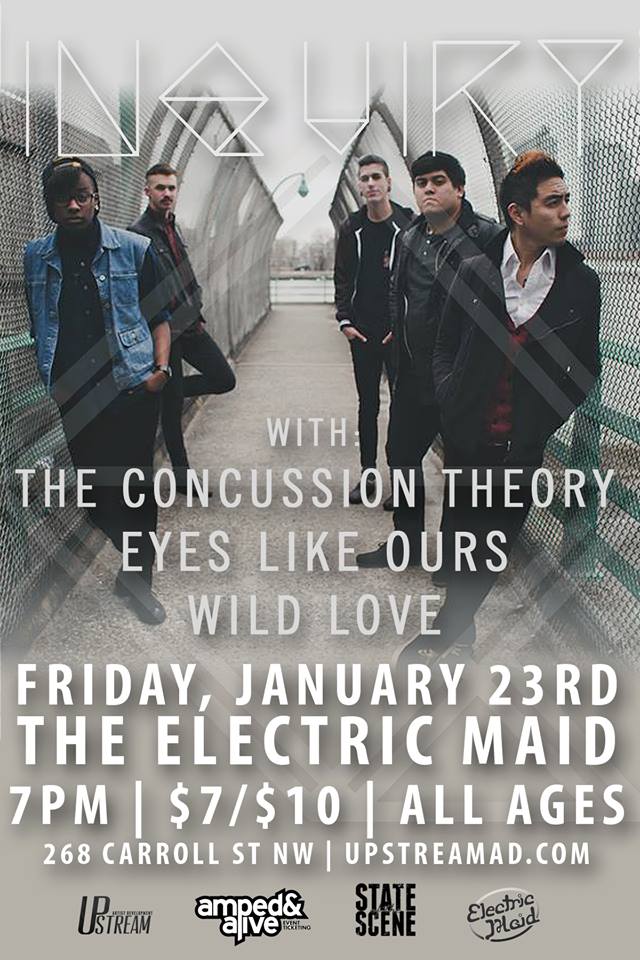
So I was like, “Whatever I end up doing, I’m just gonna have one [website] for that,” and then I started doing more booking and promoting shows with my partner Dario at the time. Dario and I would rent out Empire, and we did a show at Jammin’ Java. We did a lot of shows at Downtown 34 in Harrisonburg, which is closed, and the Blue Nile, and we started to build this network of venues where we could [book shows] and [built] a reputation. Then he left, and I got new people who were interested, Madeline [Turner, design and social media coordinator] and Brian. We decided in January of [2014] to call it Upstream, [which was] just a name that we decided on. Since then, we have been grinding under that name because I want it to be more than just me. I want it to be other people, and we picked up K Sean [Long, writer, website and marketing coordinator], which has been awesome. I have solidified a position with Empire and the Canal Club. Those are our two main places now.
So really, at the time it just came out of the idea for starting a company rather than just me being a concert promoter, putting together events, and doing just one thing. I saw a lot of local bands that couldn’t answer the question, “What do we do next, ” and I, from experience and blundering, from losing money and being ripped off, knew all the cheap places to get merch and stuff, all the good places to get designs done. I knew how to book shows, and I saw promoters ripping off bands like crazy, especially how certain venues were run in the past compared to how they are run now. … So was like, “Let me be in the middle of all that. Let me be an artist consultant, in a way.” The big picture at the time was to open up an office where we teach music lessons, have internship programs for sound and concert production, but now, it’s the focus is more toward being a bad ass concert production company with the blog.
Has your mission compare to when it started and what it is now?
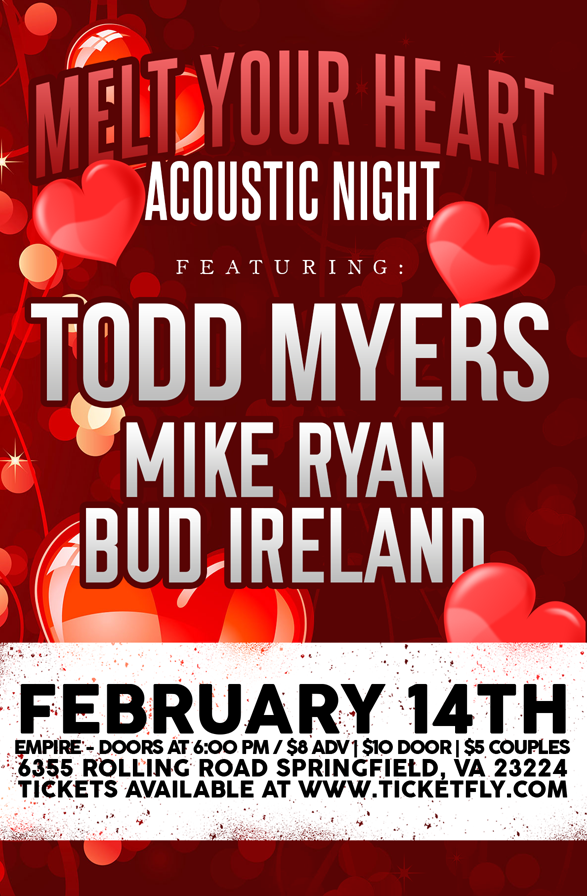 I still have a deep passion for working with bands and helping them out with designs, merch, all that stuff. Lately, the shift has been toward putting on bigger concerts, booking bigger bands, and really putting on the best events we can. We are not exclusively working with local bands anymore.
I still have a deep passion for working with bands and helping them out with designs, merch, all that stuff. Lately, the shift has been toward putting on bigger concerts, booking bigger bands, and really putting on the best events we can. We are not exclusively working with local bands anymore.
Do you feel like that expansion has helped the success of your music blog with what you are trying to accomplish?
The blog was created to help the shows. That’s why our blog, as opposed to a lot of other labor of love blogs has some longevity and staying power, because we put together these shows, and if enough people go to it, we make some money. That money pays to keep the site up, and the blog actually promotes the shows. The goal of that is to bring people to our market. Our market is local bands, but it is also fans of music when we interview bigger bands. When we interview the bigger bands that are on our shows, it brings more exposure to the local bands people probably haven’t heard of. It also drives people out to the shows. When we post articles about advice for bands or when we do a top 10 of the month, it brings us new clients for merchandising and graphic design, and some of them even end up playing our shows. It’s really just a cool, viral way to expand our network.
In addition to Empire and Canal Club, are there any other venues that you work with for your shows?
We have really good relationships with The Electric Maid in [Washington], D.C., which is a DIY, all-ages community space. We do shows at The Velvet Lounge in D.C. We did a Baltimore show at Angel’s Rock Bar, which is in Power Plant Live. We’ve done shows in Richmond, Va. at The Camel and some other smaller bars, but we are focusing on Canal Club now. We have a good relationship there. In Harrisonburg, the go-to venues are Clementine [Café], and we did a lot of shows at The Blue Nile before it closed. We are hoping to more when The Golden Pony opens.
Have you ever booked any house shows for Upstream AD?
House shows are fun. I really like them. [My band] played our first show ever at a house show, and my bands that I’ve been in have always played house shows. … But as a company, there is a huge liability risk. I don’t want to have anything bad happen at a place that doesn’t have liability insurance. I don’t want to open up my house … or other people’s houses to getting [valuables] stolen, broken, [or] puked on. … I am moving on to doing bigger shows at venues that have the capacity, the staff, and the infrastructure to make the money back and to put them on well. House shows are cool though. They will always hold a place in my heart, and they will always be necessary because that is where new music truly is born. But there won’t be an Upstream [sponsored] house show.
On your blog, “State of the Scene,” you discuss, “everything from local bands 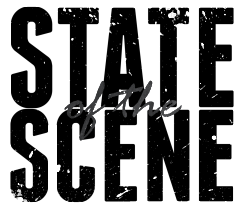 making a buzz to important issues in the local music scene.” In your opinion, what are a few of the most important issues currently in the D.C. and Virginia music scenes?
making a buzz to important issues in the local music scene.” In your opinion, what are a few of the most important issues currently in the D.C. and Virginia music scenes?
I think one issue that I try to talk about as much as possible are the presale and “pay to play” issues that come up a lot. A lot of shows, we ask bands to sell tickets if they are local because I’ve been in bands for years, and I’ve been promoting for years. I know that when you are in the area and you give your fans that physical thing that they pre-buy, they pretty much have to show up. You get paid for them paying you, whether they show up or not, and they invariably show up. It also helps us discount the tickets because if we just did it all at the door, it would raise the price up a lot, which would deter people from going. If you have ever been a promoter, you know how scary it can be to have literally thousands of dollars or tens of thousands of dollars on the line. Sometimes it’s nice to know what you can expect as far as the crowd or money coming in.
Venues need to stay open and make money, and … I realized as my bands got better and my friends got older, it was really easy to get people out. I think the issue gets misconstrued when people talk about “pay to play.” A lot of times, they are either playing too much in their market, they are trying to [sell presales] from too far away, they are playing too big of a show that they have no business playing on, or they don’t understand their place yet. If you want to play underground shows, that’s great. It’s a simple, organic way to do it. My band used to play really small places and make 100% of the entrance cover, and that would fund everything else we were doing. But a lot of the issue is bands playing on the wrong show or playing too frequently, or not really being something their friends want to see. If a band legitimately draws what they presale, and they really promote the shit out of the show, like BURN THE BALLROOM for example, people just show up. I don’t [have to] remind them about presales.
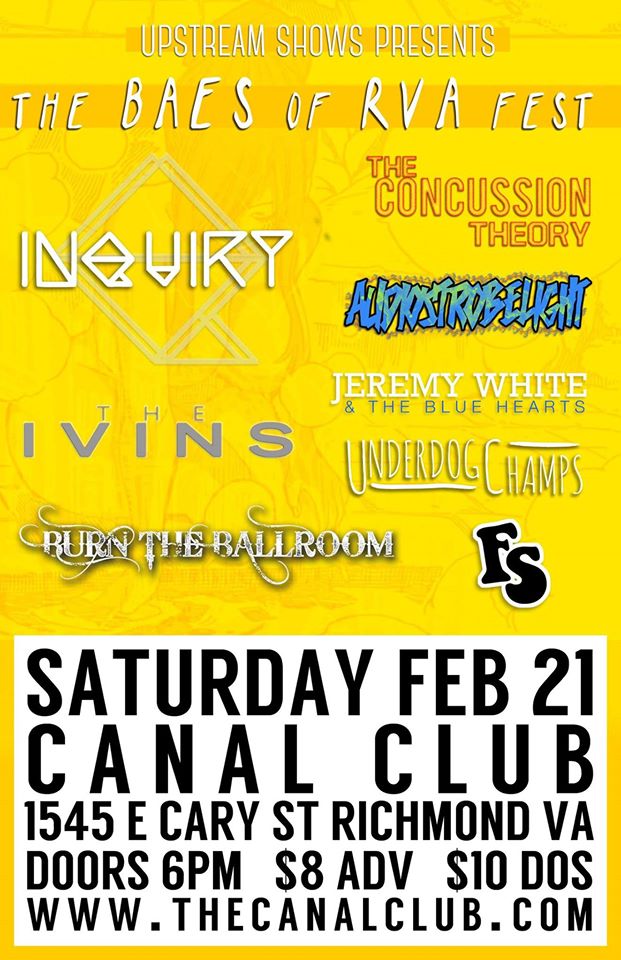 Another issue is that there is a lot of advice coming from all different directions and not a whole lot of actual authority. Being a local band on that tier, someone is going to try to sell you on something to convince you that their way is the right way and everyone else is an idiot. It’s really hard to find that honest industry person or band that will tell you, “You need to go with this guy.” … There’s always gonna be this person who will tell you, “You know, you didn’t have that great of a night tonight,” and you know that they mean it. It’s really a universal thing, but I think it’s hard to find people that tell the truth, people that are genuine, and people that actually care about your career. Support isn’t blindly telling people they did a great job; support is sometimes telling people [what they need to work on]. … If you supported them, you would have told them the truth.
Another issue is that there is a lot of advice coming from all different directions and not a whole lot of actual authority. Being a local band on that tier, someone is going to try to sell you on something to convince you that their way is the right way and everyone else is an idiot. It’s really hard to find that honest industry person or band that will tell you, “You need to go with this guy.” … There’s always gonna be this person who will tell you, “You know, you didn’t have that great of a night tonight,” and you know that they mean it. It’s really a universal thing, but I think it’s hard to find people that tell the truth, people that are genuine, and people that actually care about your career. Support isn’t blindly telling people they did a great job; support is sometimes telling people [what they need to work on]. … If you supported them, you would have told them the truth.
What is Upstream AD doing to address and help resolve those issues?
I think my shows through very carefully. I got reamed out once by a venue person. I booked a jam band, and the touring band was completely different. I got chewed out because there were two different crowds at the show that weren’t getting along together very well. They would watch one band, and the rest of them would leave. I got yelled at, “This was a bad show. You are bad at booking.” So I think all my show [ lineups [through] really well now, and it actually helps people get bands out to shows. As far as the presale issue, my solution to it is to book better shows, and I take bands at their word. If they say that they can bring out a certain number of people, I hold them to it. But I don’t ask anything ridiculous of people if they can’t deliver. I’m not going to ask a 16-year-old band who just started playing, who probably is not very good, to open up for a giant touring band and ask them to sell 100 tickets. There are venues and festivals that do that and don’t really care, but I care.
I feel like I am a decent person to come talk to for advice. Everyone has an angle, and my angle is to have bands go through us for merchandise and designs. But Upstream is kind of like the Progressive Insurance of promoters and artist development people because we show you everything I am doing, everything this guy is doing, and clearly we have something going on here that is beneficial. … Music is all about advice and community, and bringing people together.

